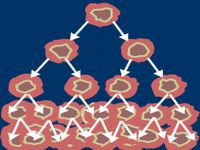The Big C: How you can make a difference
The big message on World Cancer Day 2014 is delivered by the World Health Organization's World Cancer Report 2014, which predicts a tsunami of new cases in the forthcoming years, which identifies causes and risk behavior and more importantly, points towards simple strategies for prevention.

The World Cancer Report 2014 provides some chilling information: that whereas today 14 million new patients are diagnosed with cancer every year, this figure is expected to rise to 19 million by the year 2025 and 24 million by 2035, the majority of these new cases coming from developing countries. Of equal importance is the news that half of these cases could be prevented.
Cancer alone causes more deaths (4.8 million USD) in the developing countries than HIV/AIDS (2.1m), Tuberculosis (1.1m) and Malaria (711,000) combined but receives a fraction of the funding - 168 million USD, compared with 6.2 billion for HIV/AIDS, 1.3 billion for malaria and 903 million for TB. 90 per cent of the money for cancer funding is directed towards anti-tobacco campaigns.
The big five killers are cancer of the lung (1.59 million deaths), liver (745 000 deaths), stomach (723 000 deaths), colon-rectum (694 000 deaths) and breast (521 000 deaths);
tobacco accounts for 70% of lung cancer cases, and 20% of deaths worldwide. 70% of cancer deaths occur in Africa, Asia and Central and South America, where 60 per cent of new cases are diagnosed. HBV/HCV (Hepatitis B and C) and HPV (Human Papilloma Virus, which causes cancer of the cervix) account for 20 per cent of deaths in low- and middle-income countries.
The main causes identified by the report are smoking, infections, alcohol, obesity/diet/inactivity, radiation (Sun and medical scans), air pollution/environment and delayed parenthood/fewer children/less breastfeeding. Dietary habits associated with cancer include an excessive intake of sugar - in many cases, these are factors which can be controlled by change of habit - and only around ten per cent of cancers are linked to genetic/hereditary causes.
With 30 per cent of cancer cases (8.2 million deaths worldwide) being caused by lifestyle options, and with a vast number of people unaware of the real causes of cancer and how the disease can be prevented, it makes sense to launch massive public awareness campaigns, spreading the message that the average citizen holds the key to beating this disease.
The bottom line is a healthy diet, regular exercise and therefore a healthy weight. The message is that the majority of cases of cancer can be prevented and this means a diet rich in fibre (wholegrains), fruit and vegetables, less red meat, less alcohol, less carbonated drinks, more natural juices, more water and no junk food or processed meat (sausages, ham, bacon, etc.). Plenty of exercise, plenty of clean, fresh air... and no tobacco.
Further action that people can take is to avoid too much direct sunlight and to vaccinate against HBV (Hepatitis B) and HPV (Human Papilloma Virus), as well as regular tests and screening to create early diagnoses. With the area of medicine having become a business in those countries which spent trillions of dollars in trying to sabotage the Socialist model (in which healthcare was free and excellent), and with the public healthcare systems set up by this model having been destroyed by market economics, access to the latter perhaps depends upon how successful the applicant is in pleading with insurance companies.
However, fresh fruit and vegetables are readily available and fresh air is, for the time being, free.
Timothy Bancroft-Hinchey
Pravda.Ru
Subscribe to Pravda.Ru Telegram channel, Facebook, RSS!




